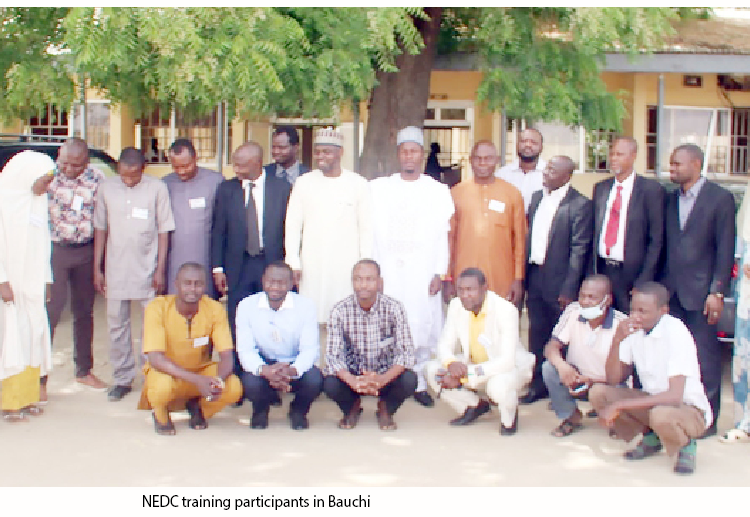Emergency healthcare service provision forms a critical cornerstone of the daily operation of a hospital. No difference – between primary to tertiary healthcare centres. In fact, this is the standard globally.
While Nigerian hospitals over the years, displayed ‘Accident and Emergency’ centres flamboyantly to serve as reference points for patients in urgent dare need of medical assistance, the expected emergency healthcare service remains a mirage in those centres due to a lack of adequate manpower supply and skills from the few hands available manning the Accident and Emergency centres.
Therefore, hospitals as well as healthcare workers in the northeast sub-region of the country, because of insurgency and other forms of insecurity tenable in the region ought to master basic emergency care skills to be able to adequately and appropriately respond to exigent healthcare needs is one of the few categories of frontline workers in either situation.
Until 2021 when Basic Training Course in Emergency Care was introduced, there was not any specific training programme targeting doctors, nurses and other paramedics working in the emergency units of Nigerian hospitals, thus feeling the training vacuum existing in the department.
The Northeast Development Commission (NEDC), learning from the realities that previously characterized the emergency care responsiveness of hospitals in the region, staged a five-day capacity-building training for selected doctors, nurses and other paramedics on Basic Emergency Care Provision at the Abubakar Tafawa Balewa University Teaching Hospital Bauchi (ATBUTH).
LEADERSHIP learnt that a similar training was extended to the same categories of healthcare workers across the six states making up the Northeast sub-region. The training was organized in collaboration with the Federal Ministry of Health.
In Bauchi as in other states, 10 doctors, nurses and paramedics, who are expected to step down the same emergency responsive skills acquired from the capacity building to colleagues in their respective units for multiplier effects, participated in the training exercise.
Cumulatively, the NEDC trained 60 healthcare service-providing workers on Basic Emergency Care provision in the first cohort of the training as part of its strategies to reposition hospitals in the post-insurgency northeast for better service delivery to the people.
The training can go a long way in providing global best practices skills to the participants critical to responding to health emergency needs occasioned by road traffic accidents, security-related accidents and, or natural disasters.
Declaring the training open, representative of NEDC Bauchi Coordinator, Abdulkadir Ibrahim Baba explained that the capacity building training was packaged to upscale and better health emergency service provision in tertiary hospitals across the northeast and by extension other health facilities in the region.
To him, when participants commit the learnt skills at the end of the training into practice, more lives will be saved from premature death.
“It is a thing joy for this hospital to be nominated to participate in this kind of training program because it is a tertiary centre that does not have a well-developed and elaborate emergency culture, which is definitely a very serious problem.
“All the stakeholders have been carefully selected to be trained for this program and it will not stop with them because they will go back to their various units and step down the training to other staff. We hope in the course of time, so many people within the hospital will imbibe this emergency culture and become proficient in the art of instituting emergency care with laid down protocols and interventions to save lives.
“By the time the patient is brought to the hospital where elaborate investigation and treatment can be instituted, other health workers can be involved. ATBU teaching hospital is very grateful to the Federal Ministry of Health and North East Development Commission for taking the initiative to station this training program in this hospital and we pray that this will continue on a sustainable basis to train and retrain our staff, build capacity and give them the opportunity to cascade this training to other facilities within the neighbourhood of Bauchi in order to develop the art of cutting edge of emergency care in line with global best practice.
“We now have a cohort of Master trainers in Nigeria and we hope by the end of this set of trainers at ATBUTH we will be able to step down this training to other lesser cadre in the medical profession so as to improve the needed manpower this services,” Chairman of Medical Advisory Council of ATBUTH, Dr Haruna Liman said while explaining to the significance of the training.
He said Bauchi is the confluence of many trunks ‘A’ roads which increases the chances of accidents that may give impetus to frequent accidents that could demand emergency care, hence the need to institute the right skills and expertise in frontline health workers.
LEADERSHIP reports that FRSC data shows that in 2021 road traffic accidents killed 413 people and inflicted injuries on 2157 people in Bauchi state. The accident occurred covering the 4000km road network of federal highways in Bauchi State. Also, a total of 480 road accidents were recorded out of which 162 are fatal crashes while 307 are serious accidents involving 3587 road users.
Dr Liman argued that the responsibility of delivering emergency care does not only rest on the shoulders of a doctor, adding that the person who was able to transit with the ambulance to the side of the emergency may be the best to save life at the point of occurrence.
Basic emergency care was designed by the World Health Organization (WHO) in collaboration with ICRC and the International Federation of Emergency Medicine, the body that provides certification for all the participants at the training.
Some of the participants interviewed expressed readiness to pass down the skills acquired from the training to their colleagues, arguing that the training could not have come at a better time than now.
“We are glad to be part of this laudable initiative of the North East Development Commission. The training is an eye opener to some of the global best practices in emergency healthcare service provision,” they said.
We’ve got the edge. Get real-time reports, breaking scoops, and exclusive angles delivered straight to your phone. Don’t settle for stale news. Join LEADERSHIP NEWS on WhatsApp for 24/7 updates →
Join Our WhatsApp Channel










